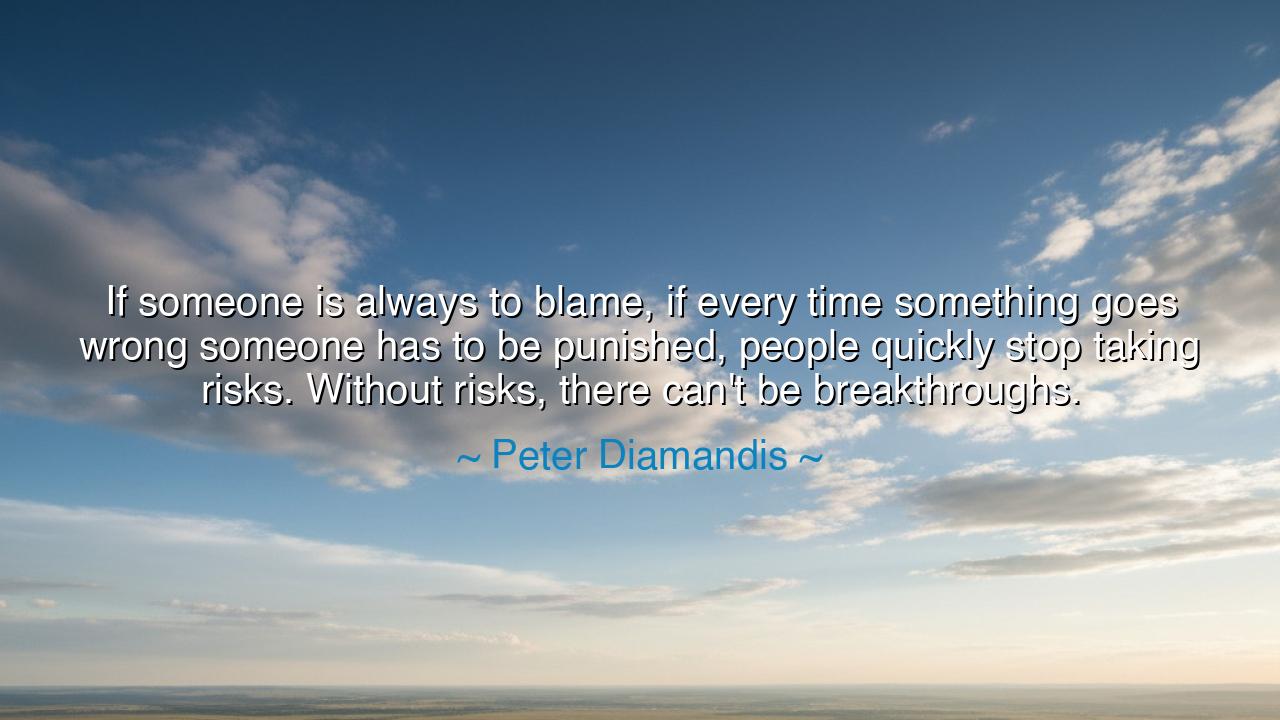
If someone is always to blame, if every time something goes wrong
If someone is always to blame, if every time something goes wrong someone has to be punished, people quickly stop taking risks. Without risks, there can't be breakthroughs.






Opening Scene – Narrated by Host
The room was filled with the soft glow of twilight, the shadows of the evening stretching across the floor. Jack sat at his desk, his eyes distant as he stared at the notes in front of him, but his mind seemed far from the task at hand. His thoughts were tangled in an idea he had come across earlier—something that challenged the way people often thought about success and failure.
Jeeny walked into the room, a warm cup of tea in hand. She set it down beside Jack, noticing the thoughtful expression on his face.
Jeeny: “You look lost in thought again. What’s on your mind?”
Jack blinked, his focus returning to the present as he picked up the tea, taking a slow sip before speaking.
Jack: “I was thinking about something Peter Diamandis said. He said, ‘If someone is always to blame, if every time something goes wrong someone has to be punished, people quickly stop taking risks. Without risks, there can’t be breakthroughs.’ It made me think about how often we place blame when things go wrong, and how that fear of punishment can actually hold us back from trying new things, from pushing the boundaries.”
Jeeny sat down across from him, her fingers gently wrapped around her tea cup, her expression thoughtful.
Jeeny: “It’s such an interesting perspective, isn’t it? We’re so focused on finding someone to blame when things don’t go right, but that kind of thinking doesn’t foster innovation. If we’re always worried about the consequences of failure, we won’t take the risks that are necessary for breakthroughs. Mistakes are part of the process, and without them, we’re stuck in the same place.”
Jack: “Exactly. And I think it’s because the fear of failure—and the punishment that often follows—becomes a roadblock. We stop trying new things because we’re afraid of the consequences. But what if we embraced mistakes as part of the learning process? What if we saw them as stepping stones toward growth, rather than something to be punished or avoided at all costs?”
Host: The conversation deepened as Jack began to realize the true cost of placing blame in every situation. The focus on punishment stifled creativity and innovation. Without the freedom to fail, to make mistakes, there was no room to grow, no room for progress. Diamandis’s words were a reminder that breakthroughs, whether in science, technology, or personal growth, required a willingness to take risks and accept the possibility of failure.
Jeeny: “It’s almost like we’ve been conditioned to think of failure as the worst thing that can happen, when in reality, it’s often a necessary part of success. Look at any major innovation—whether in business, science, or even art. Every great success was built on a foundation of trial, error, and risk. If we’re too afraid to fail, we miss the opportunity to succeed.”
Jack: “That’s what’s so powerful about the idea of risk-taking. It’s not about being reckless, but about understanding that failure isn’t something to fear—it’s something to learn from. It’s part of the process of pushing boundaries, of doing things that haven’t been done before.”
Jeeny: “Exactly. And when we stop blaming, when we stop punishing failure, we create an environment where people feel free to experiment, to take those risks without the fear of consequences. That’s when true breakthroughs happen—when we allow ourselves and others the space to fail and grow from it.”
Host: Jack sat back, the weight of their conversation settling in. He realized that the real barrier to progress wasn’t failure itself—it was the fear of failure, the constant need to assign blame and punish mistakes. True innovation, whether in technology, business, or personal growth, came from embracing risk, from allowing people the freedom to fail without facing punishment.
Jack: “So, maybe the key isn’t to eliminate failure or to assign blame when something goes wrong. It’s about creating an environment where mistakes are seen as part of the process, where we can fail without fear, and in doing so, create the space for breakthroughs to happen.”
Jeeny: “Exactly. It’s about seeing mistakes as opportunities, not as setbacks. And when we stop punishing them, we open up a whole world of possibilities. Without the fear of failure, people are free to innovate, to think outside the box, and to take the risks that lead to real change.”
Climax and Reconciliation
Jack smiled, the clarity of their conversation settling in. He understood now that the path to progress was not through avoiding failure, but by accepting it as part of the journey. Risk-taking and innovation required a mindset shift—one that embraced mistakes, not as evidence of failure, but as necessary steps toward success.
Jack: “So, the lesson is that we shouldn’t fear failure. We should embrace it as part of the process, as part of the risk that leads to breakthroughs. If we can let go of the need to place blame and instead focus on learning from the experience, we can create an environment where innovation and growth can thrive.”
Jeeny: “Exactly. When we stop punishing failure, we open the door to real growth and innovation. It’s in those risks, those mistakes, that we find the opportunities to truly move forward.”
Host: The room felt lighter now, the weight of their conversation lifting as they both reflected on the power of risk-taking. Outside, the world continued its rhythm, but inside, Jack and Jeeny had discovered something important: progress wasn’t just about avoiding failure—it was about creating the freedom to fail, to learn, and to grow. And in that freedom, true breakthroughs could happen.






AAdministratorAdministrator
Welcome, honored guests. Please leave a comment, we will respond soon